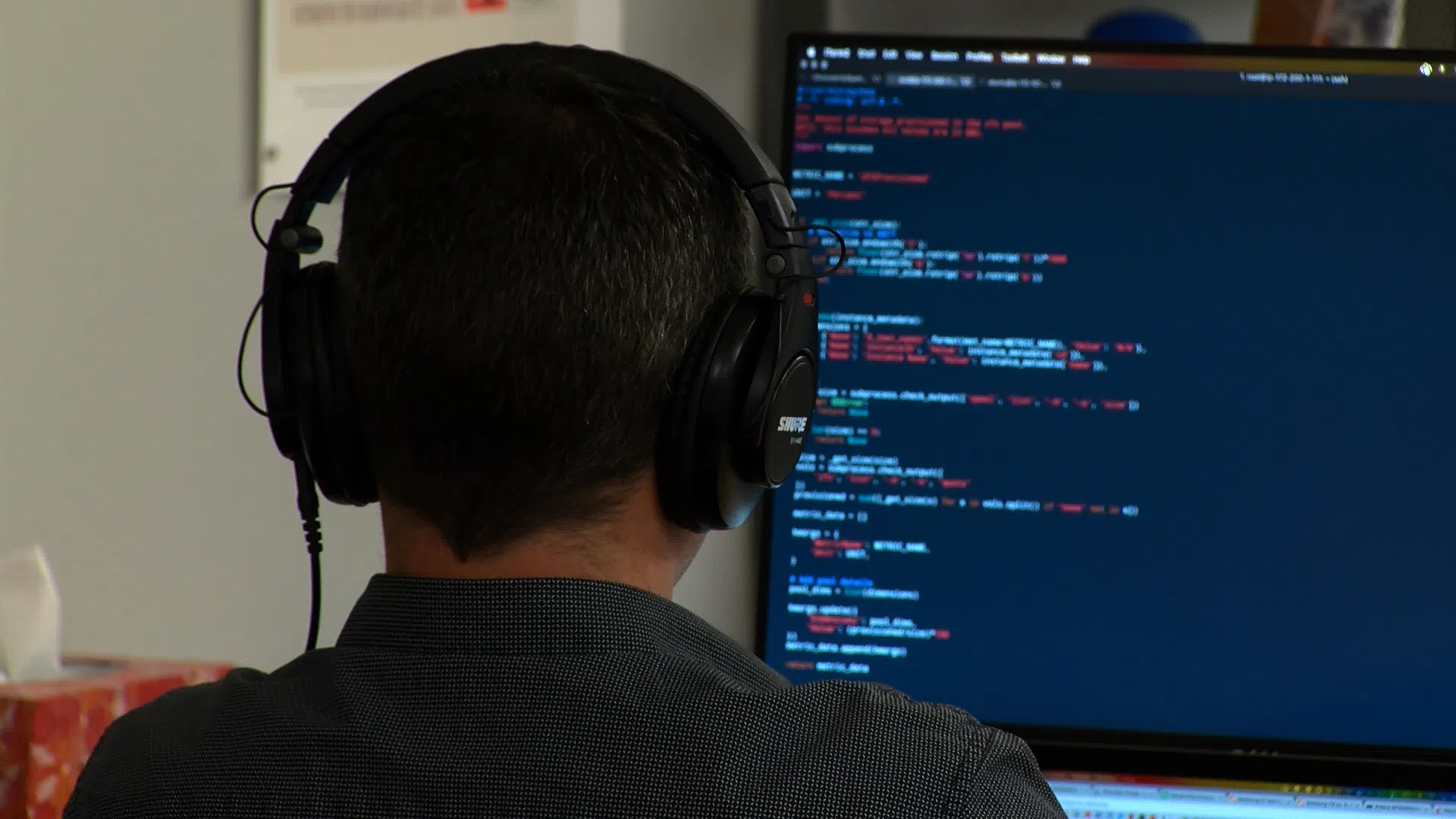
Gaining Tech Skills In The North
PRINCE GEORGE – In today’s highly competitive tech industries, competition is fierce. The question is, are students getting the proper skills they need at post-secondary schools such as UNBC?
Mike Connor is a former graduate of Computer Science, who now works in Development Operations for Sparkgeo, a software development company in Prince George. When he was back in the computer labs on campus, there was always numerous projects that he worked on with other classmates. Like any group project, there were challenges when working with different personalities, but a learning experience nonetheless. Connor received a lot of theoretical knowledge that will later help him dive into new technologies in the workplace. As the industry continues to change, it’s that foundation that allows him to face something new every day at Sparkgeo.
Connor’s typical routine in Dev Ops consists of a long list of tasks that require fixing or using new features to add to a project. He also monitors the networks and servers along with file systems to make sure everything is running properly. Connor is one of many UNBC Computer Science graduates who have taken up an opportunity to stay and work in the North. This continues to help strengthen the tech ecosystem in the region. Graduates from the Computer Science program have trained students for industry jobs and research ones as well.
Sparkgeo’s CEO, Will Cadell says about 30 percent of their staff have some connection with UNBC. In his view, that’s a valuable asset to the company, because they are able to maintain a strong relationship with the university. With that in mind, Cadell is able to pick from a talent pool that includes interns, hardware and software engineers. Sparkgeo is a custom software development company that takes location data, whether that’s satellites, handheld or GPS, and they visualize it by creating numerous applications for industries like the resource sector. In the case of resources, it’s a question of where to harvest or where to dig. Cadell is also the Chair of the Innovation Central Society (ICS), which is the local technology incubator and owners of the coworking space, The Hubspace. Recently, ICS submitted a letter of support to the City to recognize and celebrate technology and innovation in a resource community in order to receive a grant from the Northern Development Initiative Trust (NDIT). City Council approved it and Cadell says, “it’s gratifying to see that what was traditionally understood as a resource town can see tech as one of those key resources. So that’s really powerful knowing that we can think about tech in terms of the resource sector and making it better.” He adds that “we can also think about diversifying our present economic mix.” By putting those things together, Cadell feels that there’s a lot of opportunity for cities like Prince George in the future.
